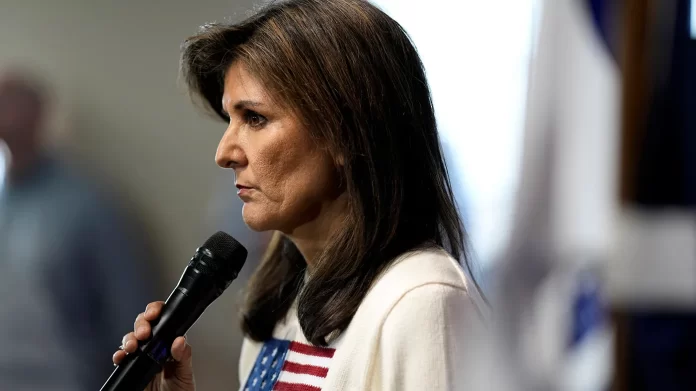As one of the few Indian American candidates ever to run for the US presidency and the sole woman in the Republican primary, Haley naturally garnered interest within the Indian and South Asian American communities, supported by several influential Indian American donors
Leaders from prominent Indian and South Asian American associations in Iowa assert that US Presidential candidate Nikki Haley missed a significant opportunity to boost her support by neglecting to engage with Indian American voters, as reported by nytimes.com.
As one of the few Indian American candidates ever to run for the US presidency and the sole woman in the Republican primary, Haley naturally garnered interest within the Indian and South Asian American communities, supported by several influential Indian American donors. However, similar to other Republicans in this primary cycle, she has not actively pursued voters of color and seldom emphasized her identity to attract new supporters.
Former and current leaders of organizations such as the Indo American PAC-IA, the Iowa Sikh Association, and the Indo American Association of Iowa revealed that they reached out to the Haley campaign in the late spring and early summer, even when she faced low poll numbers and struggled to gain traction in the state. They had hoped to host her at various events, including temples, town hall-style gatherings, and house parties.
Regrettably, as of January 9, no such appearances have materialized. Several leaders expressed frustration, stating that the lack of outreach has alienated some of their members. Prakash Kopparapu, Chairman of the Indo American PAC-IA, remarked, “It really raises the question: Who are you willing to engage in the dialogue? Do you want the support and do you support the engagement of Indian Americans across the board?”
Responding to these concerns, Olivia Perez-Cubas, a spokeswoman for the Haley campaign, offered only that “Nikki is working to lift up all Americans by making America strong and proud.”
With nearly 20,000 voters in the state, their participation in caucuses has been steadily increasing
While Haley attempted to navigate a delicate balance regarding her identity, she also faced attacks from Republican rivals and their allies. Former President Donald J. Trump, on January 8, questioned her US citizenship on social media, coinciding with polls showing her narrowing Trump’s lead in New Hampshire.
In contrast, Indian American candidate Vivek Ramaswamy actively engaged with the community, making appearances at the Hindu Temple and Cultural Center of Iowa and participating in events organized by the Indo American PAC-IA. His wife, Apoorva, a surgeon and cancer researcher, has also been involved in events at the homes of Indian American families and a Sikh Temple.
Although the Republican presidential primary initially featured a racially diverse field, it has recently narrowed. Indian American voters, a potent but relatively small segment of the electorate, traditionally lean Democratic but possess the potential to influence elections. With nearly 20,000 voters in the state, their participation in caucuses has been steadily increasing.
Himanshu Pathak, former president of the Indo American Association of Iowa, speculated that Haley may have perceived the electorate as too small to make a difference. He emphasized, “We are low in numbers – but not that low. And we are increasing day by day.”
************************************************************************
Readers




